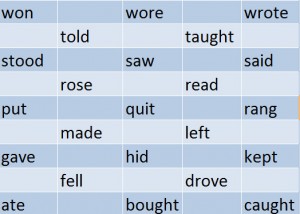One of my students showed me this graduation project made by a 12th grader at another school. The girl tells about her life as the eldest daughter in a family in which both parents are deaf. In the film she describes how she had to grow up really fast and how much her entire family (two younger siblings) relies on her. She interperts for her parents and is responsible for her siblings homework (not to mention housework , but that’s not because her parents are deaf). The heroine also talks about dreams she gave up. This short film is in Hebrew with Hebrew subtitles.
The film made me very sad. It reminded of a powerful book I read years ago called “In this Sign” by Joanne Greenberg, which came out in 1970 (it seems to have come out in a new edition in the 80’s but I’m talking about 1970). This tale is also narrated by a hearing daughter of deaf parents who had to grow up very quickly as her parents relied on her so much. But that was in the days when hearing aids were nothing like they are today, there were no cochlear implants AND all this awesome world of technology was not available for the deaf. I know how independant deaf people can be today.
Yet, here this girl is, telling a similar tale, 43 years later. So sad.
By the way, I just discovered when Googling this book that it was written by the same author of another great book ” I never promised you a rose garden”. The author used a pseudonym.





